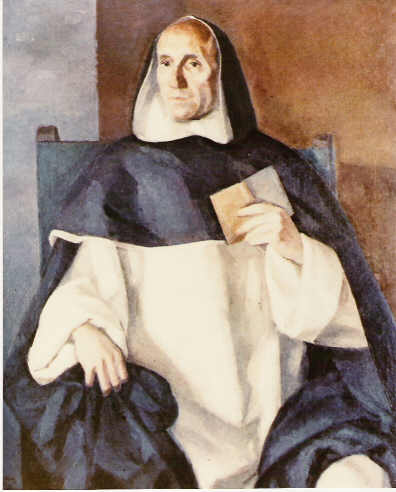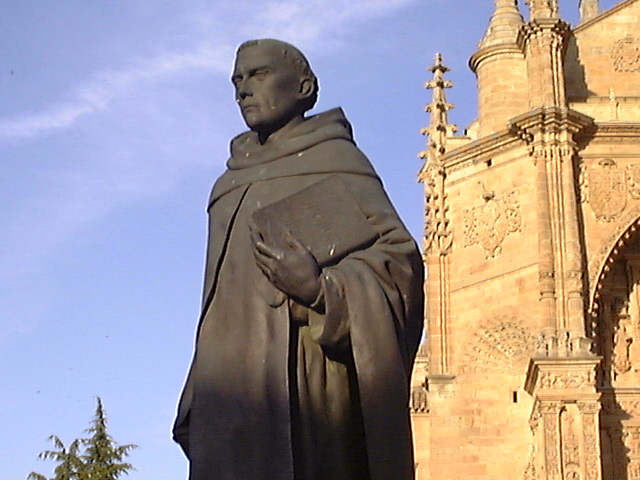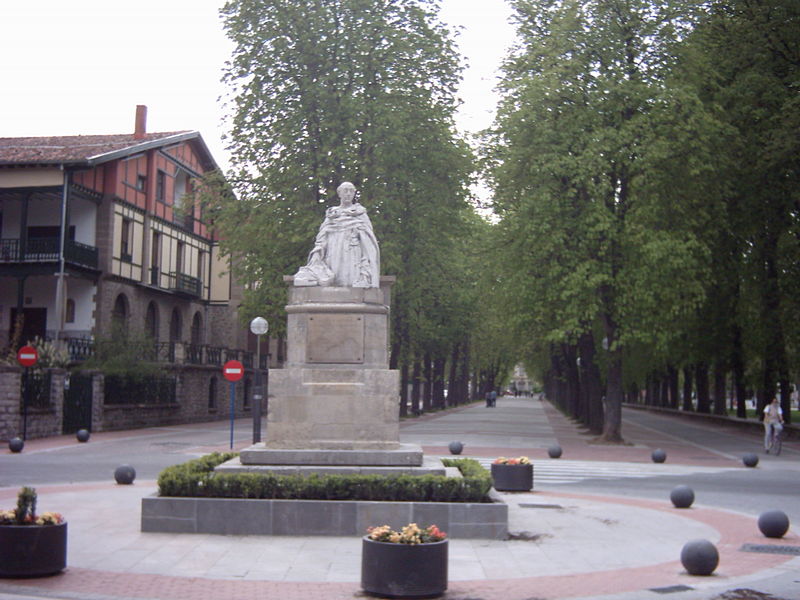<Back to Index>
- Philosopher and Jurist Francisco de Vitoria, 1492
PAGE SPONSOR


Francisco de Vitoria, OP (Francisco de Victoria; c. 1492 – 12 August 1546) was a Spanish Renaissance Roman Catholic philosopher, theologian and jurist, founder of the tradition in philosophy known as the School of Salamanca, noted especially for his contributions to the theory of just war and international law. He is considered by some scholars the "father of international law", though most reject this view. Pagden's introduction to the Cambridge edition of Vitoria's Political Writings, for instance, argues '[s]uch a notion is anachronistic, since the concept of an "international law" has its origins in the "modern" natural law theorists, notably Hugo Grotius, Samuel Pufendorf, and John Selden... Vitoria's account of the ius gentium, furthermore, occupies only a small part of his total work, and is not entirely consistent.' Because of Vitoria's conception of a "republic of the whole world" (res publica totius orbis) he recently has been labeled "founder of global political philosophy".
Francisco had Jewish converso ancestry. He became a Dominican in 1504, and was educated at the College Saint - Jacques in Paris, where he met Erasmus and went on to teach theology from 1515 (under the influences of Pierre Crockaert and Thomas Cajetan). In 1523 he returned to Spain to teach theology at the monastery of St. Gregory at Valladolid. Three years later, he was elected to the Prime Chair of theology at the University of Salamanca, where he was instrumental in promoting Thomism (the philosophy and theology of St. Thomas Aquinas) until 1546. He renewed the methods of theology and natural or public law.
A noted scholar, he was publicly consulted by Charles V, Holy Roman Emperor and
King of Spain. He worked to limit the type of power the Spanish empire
imposed on the Native Peoples. He said "The upshot of all the preceding
is this, then, that the aborigines undoubtedly had true dominion in both
public and private matters, just like Christians, and that neither
their princes nor private persons could be despoiled of their property on the ground of their not being true owners." Thomas E. Woods goes
on to describe how some wished to argue that the natives lacked reason,
but the evidence was against this because the natives had obvious
customs, laws, and a form of government. His
works are known only from his lecture notes, he himself having
published nothing in his lifetime, nevertheless his influence, such as
on the Dutch legal philosopher, Hugo Grotius, was significant; Relectiones XII Theologicae in duo libros distinctae was published posthumously (Antwerp, 1604).
Notes of his lectures from 1527 - 1540 were copied by students and published under the following titles: De potestate civili, 1528; Del Homicidio, 1530; De matrimonio, 1531; De potestate ecclesiae I and II, 1532; De Indis, 1532; De Jure belli Hispanorum in barbaros, 1532; De potestate papae et concilii, 1534; Relectiones Theologicae, 1557; Summa sacramentorum Ecclesiae, 1561; De Indis et De Jure Belli (1917 translation of a large part of the Relectiones Theologicae).
